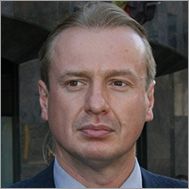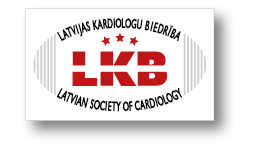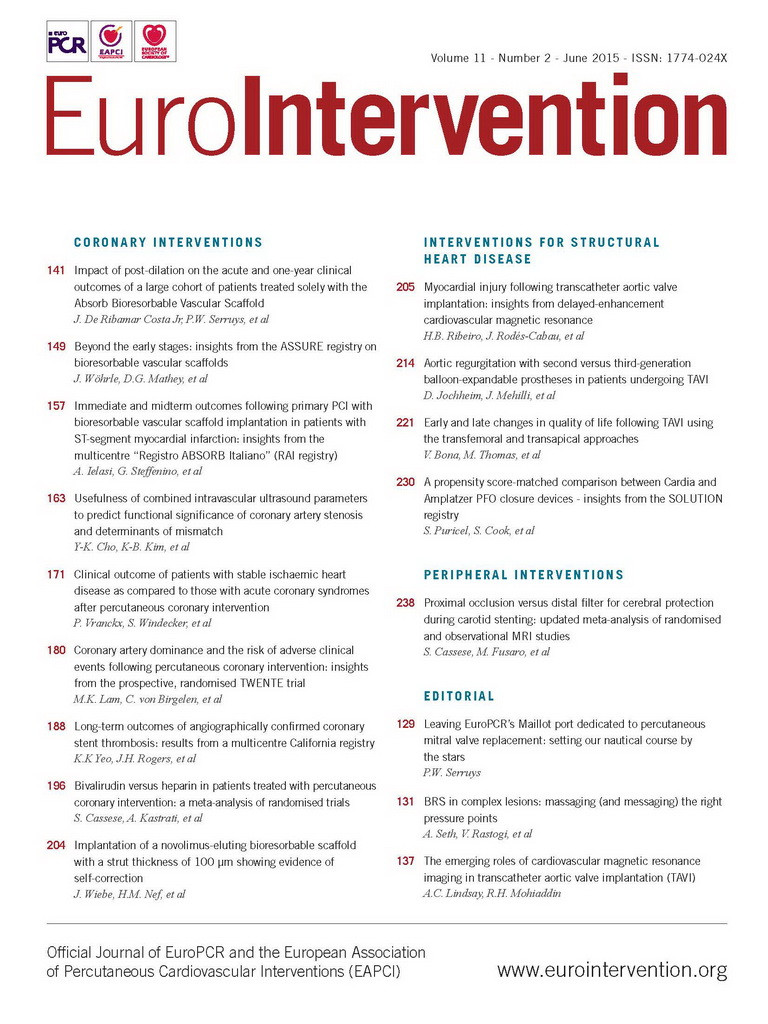NEWS
■EAPCI Fellowships. During EuroPCR 2015, the Fellowship committee, chaired by Adam Witkowski, awarded four training grants to Daniele Giacoppo (Italy), Marco Mennuni (Italy), Pierre Deharo (France) and Erik Holy (Switzerland). In addition, two research grants were awarded to Giuseppe Gargiulo (Italy) and Pangiotos Xaplanteris (Greece).These awards were supported by grants from AstraZeneca, Boston Scientific, Edwards Lifesciences, Medtronic, Terumo and the EAPCI.
■EAPCI Website. A new design aimed at improving browsing with smartphones and tablets has been launched with new user-friendly features such as a top news area, regular highlights and an association events calendar. Check it out at: http://www.escardio.org/The-ESC/Communities/European-Association-of-Percutaneous-Cardiovascular-Interventions-EAPCI/Welcome-to-EAPCI.
EAPCI Focus on the Working Group on Interventional Cardiology of the Latvian Society of Cardiology
An interview with the President, Andrejs Erglis
What does the EAPCI membership mean for a national society?
As Latvia is a very small country, we are naturally extremely happy to be part of the big EAPCI family. Through our membership, we have been able to co-host sessions at EuroPCR, last year with Denmark and this year with Siberia. These sessions help us improve our interventional techniques resulting in our ability to advance in both education and science, but, most of all, they help us improve the standard of care we offer our patients.
Another positive aspect of EAPCI membership for us is the promotion of the harmonisation of interventional cardiology in Europe. To use Jean Marco’s great Airbus analogy (the plane being built not only in France, but also in Spain and the UK), although our cultures and mentality may be somewhat different, together we can achieve more. Good examples of this harmonisation through the work of the EAPCI are the Stent for Life initiative, the publication of the ESC guidelines and the various EAPCI consensus documents.
What are the current issues related to the national society?
As I mentioned earlier, Latvia is a very small country with two million inhabitants and only four hospitals with cath labs. Our investment in healthcare is currently 3.5% of GDP, which, when compared to other countries, is very limited (for comparison: according to WHO data in 2013, France and Germany devoted 8%, The Netherlands 11%). For us it is a real struggle to convince the authorities to invest more in healthcare, since without this investment it is challenging to improve the quality of care. A good example is our goal to set up a TAVI programme, for which no special funding is available.
Despite these financial limitations, we have been successful in establishing a good research environment. For instance, we have been involved in major international trials and registries such as the NORDIC bifurcation study.
Other challenges concern recognition of interventional cardiology as a subspecialty since currently no cardiology subspecialty is recognised in Latvia, and the development of a formal training programme using the ESC Core curriculum.

Andrejs Erglis, President of the Working Group on Interventional Cardiology of the Latvian Society of Cardiology

President: Andrejs Erglis
Contact details: [email protected]
Working Group website: www.kardiologija.lv
Upcoming annual meeting: Baltic Summer on Interventional Cardiology 2015, 19-20 June, 2015, Riga and Jurmala, Latvia
Founded: 1996 (WG) 1972 (Society)
Members: 33 (WG) 353 (Society)
EAPCI members: 4

